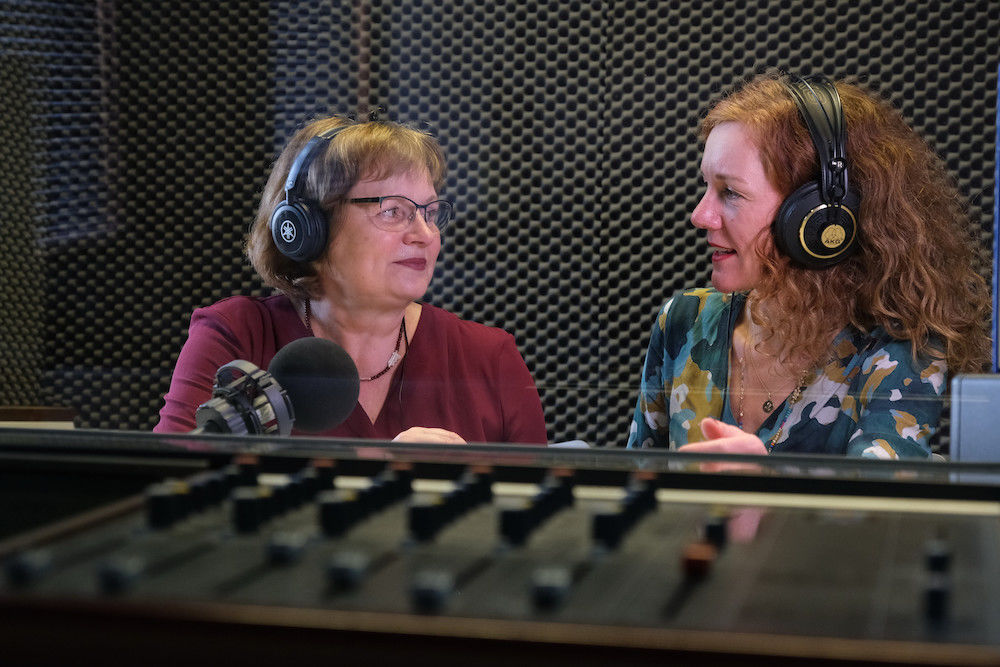Talking to children

In what situations do children use reasoning at nurseries? Less so when there is a conflict that ultimately requires a winner. In such cases, explains speech scientist Professor Ines Bose, they tend to pull one another’s hair and their verbal quarrels quickly get stuck in a dialogue like “Yes!” – “No!” – “Yes!” – “No!”. According to the expert, children mainly demonstrate reasoning when working together to solve a problem in a cooperative atmosphere, in consensus. This is one of the findings made by speech scientists from the MLU and the University of Marburg as part of a project carried out at the “Am Moritzburgring” nursery in Halle.
The researchers spent ten months observing a nursery discussion group called “Stumbling Blocks and Wishing Stars”, where the oldest members, pre-school children, could bring up problems and wishes to be discussed in the group. The topics ranged from knotted playing cloths and scuffles to their next long-awaited trip to the zoo. This resulted in almost four and a half hours of video recordings – with the parents’ consent and in accordance with data protection regulations – which were analysed both quantitatively and qualitatively from a scientific perspective. The scientists recorded the number and nature of the topics, as well as common conversational practices demonstrated by the children and educational staff; they also examined their reasoning skills and considered how they could be promoted. “The development of arguments in children of this age has generally been overlooked by researchers to date”, says Dr Stephanie Kurtenbach, who is working with Ines Bose on the project.
However, the research is not an end in itself for the scientists; their aim is to put their findings into practice when training pre-school teachers. The transfer of knowledge is a big issue for Bose and Kurtenbach, as can be seen in a long-term project. They have been cooperating with municipal day-care centres in the City of Halle for ten years, promoting everyday communication between the educational staff and children. Since 2010, annual training courses have been offered for nurseries run by various institutions, and the results have been scientifically evaluated.
The courses have covered a broad range of topics, but the initial focus was on early-years communication. This includes gestures and eye contact, non-verbal elements upon which language skills can be developed. “We taught education professionals how to recognise children’s communication impulses and pick up on them”, says Stephanie Kurtenbach, who is coordinating the training project with Franziska Kreutzer from the municipal day-care centre. Many educators believe a child’s language development only begins when they say their first word. “But that’s not the case”.
Over the past three years, the focus has shifted to multilingualism, which has long formed a challenging part of everyday life at nurseries. How can multilingualism be addressed in an engaging way for all children – even for those who come from monolingual households? How can nursery staff best support children with other “family languages”? How should they react when children switch between various languages, which is completely normal? And finally, what role must be played by their mother tongue in this process?
In the five-month training course with four training days and three practical days, education professionals form tandems with master’s students in speech studies. One special feature is the video documentation of the practical tasks. Kurtenbach explains that several regional education plans recommend video footage as a quality standard to allow nursery specialists to reflect on their own communication habits, but this is not implemented for various reasons. The subsequent self-analysis – initially in the sheltered environment of the tandem exchanges – is an important part of the speech science project. This has resulted in quite a few eye-opening experiences: “I spoke too soon – I didn’t let the child finish” is one such example. Conversation processes can only be analysed by studying authentic communication, not just through recollections or simulations. “That’s what our research tells us”, says Bose.
The cooperation between researchers and municipal day-care centres in Halle has so far resulted in videos of 53 tandem exchanges, which can also be used for scientific evaluation, such as in final papers. The nursery research has been the focus of 30 master’s theses in recent years, and several doctoral theses are in the works, says Professor Bose. Furthermore, observation sheets have been created and evaluated for early-years communication and multilingualism, and these are now being used at nurseries to help develop ideas for action. Bose refers to the project as a triad consisting of research, the education of students and the training of nursery specialists. The scientists emphasise that the focus is on developing a mutual cooperation as peers, whereby the researchers can benefit from the everyday experiences of the nursery staff who, in turn, can exploit the insights gained by the researchers.
Childcare professionals are showing an enormous interest, as proven at a recent conference entitled “Children Talking – Talking to Children”, which was held during the “Small Discipline Weeks – Speech Science”. Not even Ines Bose had expected the public part to be attended by 80 guests, including several professionals from the field of language development.
Professor Ines Bose
Institut für Musik, Medien- und Sprechwissenschaften
Telephone: +49 345 55-24465
Mail: ines.bose@sprechwiss.uni-halle.de
Dr Stephanie Kurtenbach
Institut für Musik, Medien- und Sprechwissenschaften
Telephone: +49 345 55-24470
Mail: stephanie.kurtenbach@sprech-wiss.uni-halle.de
